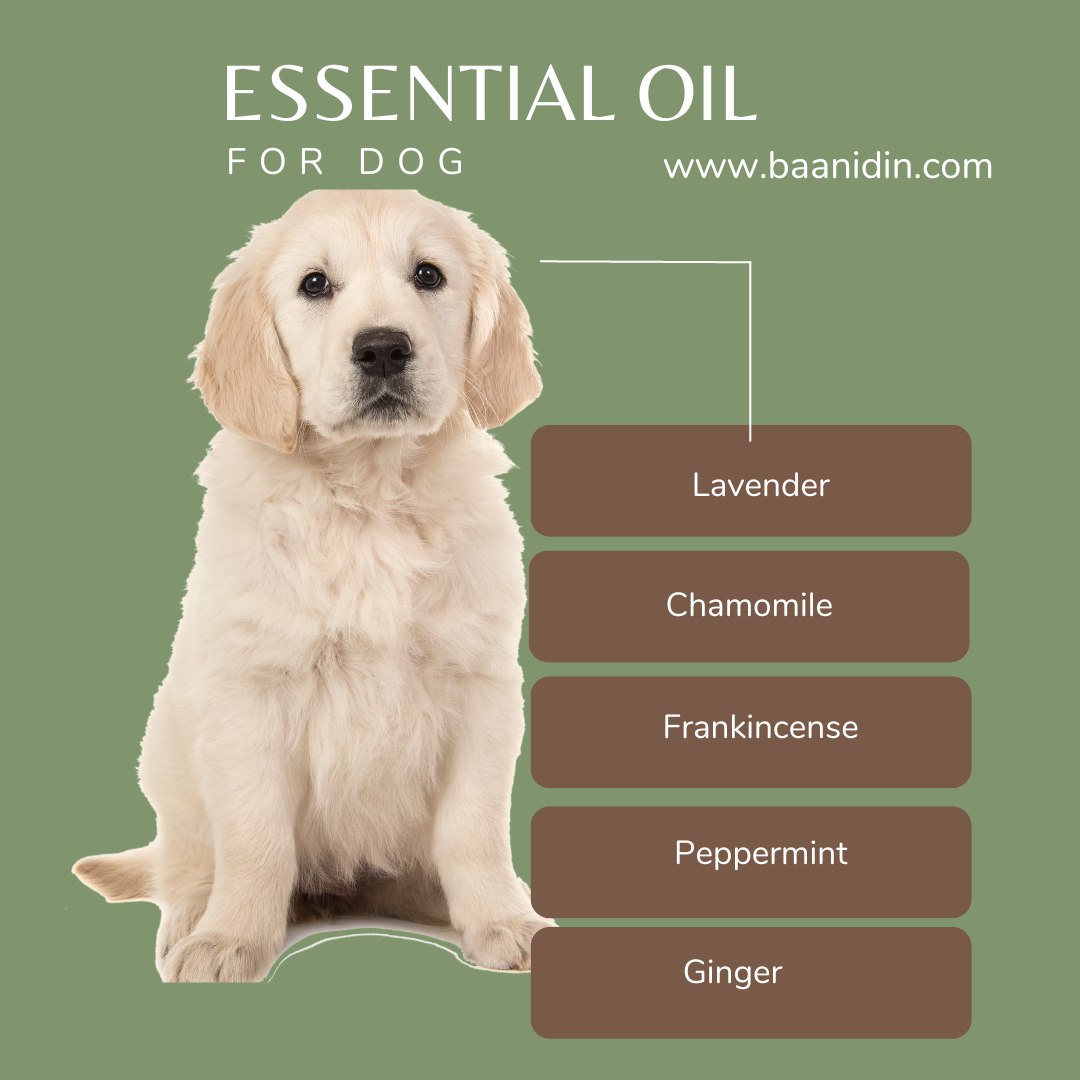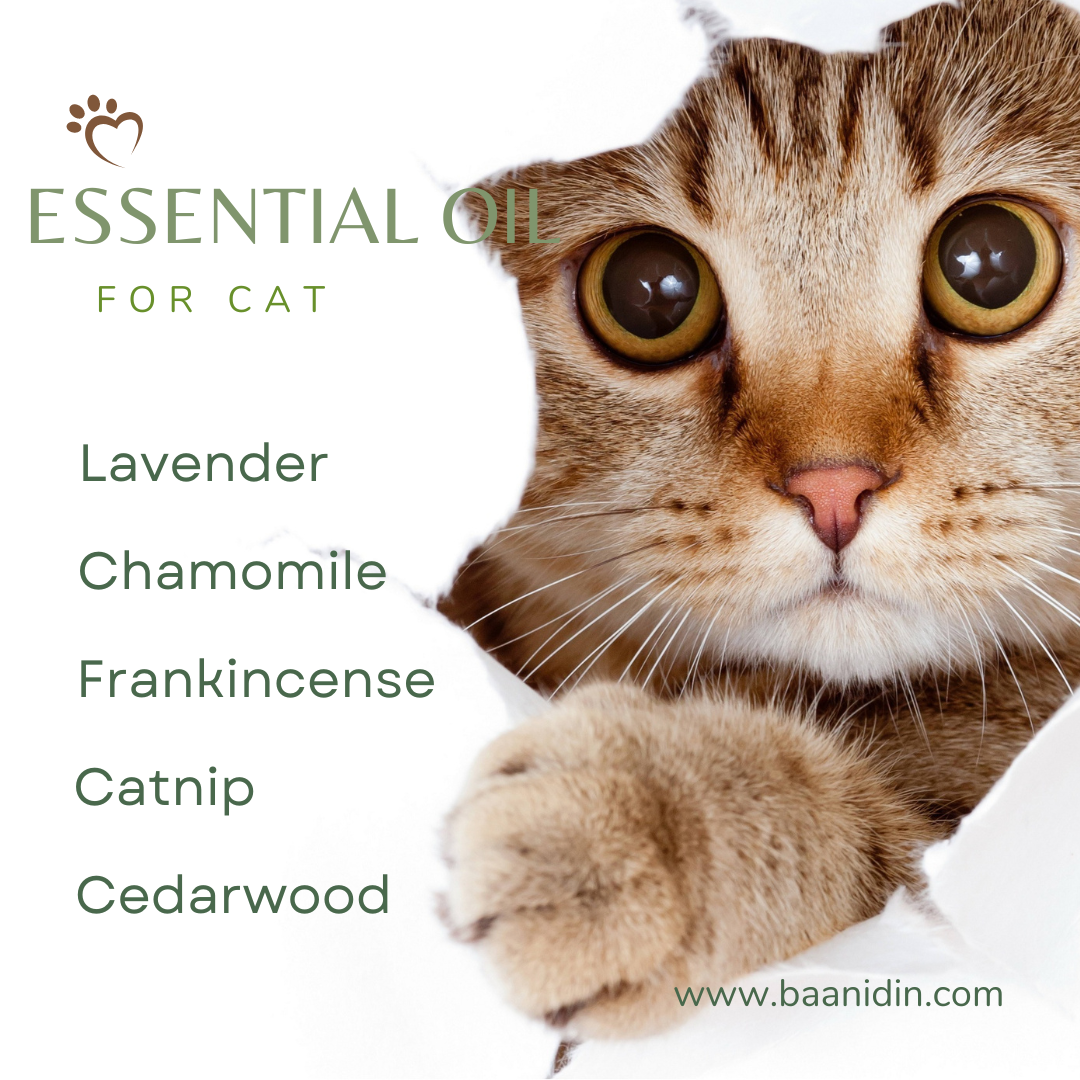How to use essential oils safely for dogs and cats:
1629 Views |

Using essential oils for dogs and cats can be beneficial when done with caution and care. However, it's essential to note that pets are more sensitive to essential oils than humans, and some oils can be harmful or even toxic to them.
Here are some guidelines on how to use essential oils safely for dogs and cats:
1. Consult a Veterinarian:
Before using any essential oils on or around your pets, consult with a veterinarian who is knowledgeable about essential oils and their effects on animals. They can provide guidance based on your pet's specific needs and health condition.
2. Dilution is Key:
Essential oils should always be diluted before applying them to pets. Dilute the essential oil in a carrier oil, such as fractionated coconut oil or sweet almond oil, at a safe ratio. The specific ratio may vary depending on the oil and the size of your pet, so consult with your vet for guidance.
3. Avoid High-Risk Oils:
Some essential oils are known to be toxic to pets, including but not limited to tea tree oil, eucalyptus oil, cinnamon oil, and clove oil. Avoid using these oils around your pets.
4. Choose Pet-Safe Oils:
If you do decide to use essential oils for your pets, choose oils that are generally considered safe, such as lavender, chamomile, and cardamom. Even with safe oils, it's crucial to use them in moderation and with proper dilution.
5. External Use Only:
Do not administer essential oils orally to your pets unless specifically directed by a veterinarian with experience in animal aromatherapy. Ingestion of essential oils can be extremely dangerous for animals.
6. Proper Application:
Apply diluted essential oils topically to your pet's fur, avoiding sensitive areas like the eyes, ears, nose, and genitals. Apply a small amount to test for any adverse reactions before using it more extensively.
7. Diffusion:
You can use essential oil diffusers in your home, but make sure that the concentration of essential oils in the air is very low and that your pets have the option to leave the room if they are sensitive to the scent.
8. Monitor for Reactions:
After applying or diffusing essential oils, observe your pet for any adverse reactions. Signs of sensitivity or toxicity may include excessive drooling, coughing, sneezing, lethargy, vomiting, diarrhea, or changes in behavior.
9. Do Not Overuse:
Use essential oils for pets sparingly and only as needed. Overuse or excessive exposure to essential oils can be harmful.
10. Individual Variation: - Keep in mind that each pet is unique, and their tolerance to essential oils can vary. Some pets may be more sensitive than others, so it's important to be cautious.
11. Pregnant Pets and Puppies/Kittens: - Pregnant animals and very young puppies or kittens are often more sensitive and should be treated with extra caution when it comes to essential oil use.
Essential Oils for Dogs:
Lavender (Lavandula angustifolia): Lavender is known for its calming and soothing properties. It can be used to help reduce anxiety and promote relaxation in dogs.
Chamomile (Matricaria chamomilla): Chamomile is another calming oil that can be used to ease stress and anxiety in dogs. It's often used in blends for skin irritations as well.
Frankincense (Boswellia carterii): Frankincense may have anti-inflammatory properties and can be used topically for joint discomfort or as part of a calming blend.
Peppermint (Mentha piperita): Peppermint can be used to deter insects when diluted and applied topically, but it should be used sparingly and with caution due to its potency.
Ginger (Zingiber officinale): Ginger may help with motion sickness and nausea in dogs. It should be used in very low dilutions.

Essential Oils for Cats:
Lavender (Lavandula angustifolia): Lavender can be calming for cats as well, but it should be used sparingly and with caution, as cats are more sensitive to essential oils.
Chamomile (Matricaria chamomilla): Like in dogs, chamomile can be used to calm anxious cats. Use it in highly diluted forms.
Frankincense (Boswellia carterii): Frankincense may help with anxiety in cats, but it should be used cautiously and in very diluted forms.
Catnip (Nepeta cataria): Catnip oil is a favorite among cats, and it can be used to encourage play and exercise. Most cats respond positively to catnip.
Cedarwood (Juniperus virginiana): Cedarwood may help deter fleas, but it should be used in minimal quantities and with proper dilution.

It's crucial to dilute essential oils properly when using them on or around pets. A general guideline is to use a maximum of 1% essential oil dilution for dogs and 0.1% for cats.
This means that for every 1 ounce (30 ml) of a carrier oil (such as fractionated coconut oil), you should use no more than a few drops of essential oil.
Additionally, monitor your pet's reaction to any essential oil you use. If you notice any signs of discomfort, irritation, or adverse reactions, discontinue use immediately and consult with a veterinarian.
Remember that individual pets can have different sensitivities, so what works well for one may not work for another.
Always prioritize the safety and well-being of your pets when using essential oils, and consider consulting with a veterinarian experienced in holistic or alternative therapies for specific recommendations based on your pet's needs.






